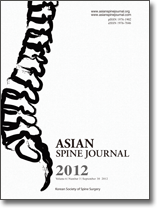
Spine
Topical TXA superior to placebo in reducing blood loss after instrumented posterior spinal fusion
Asian Spine J. 2019 Feb;13(1):146-154.60 patients between the ages of 18-70 with thoracolumbar spinal injuries and scheduled for long segment instrumented posterior spinal fusion surgeries with local autologous bone grafts were randomized to receive topical tranexamic acid (TXA) or a placebo solution for the control of blood loss and need for transfusion. The primary outcome of interest was post-operative packed red blood cell transfusion rate. Secondary outcomes of interest included the length of stay and post-operative hospitalization, drainage removal time, post-operative anterior body height loss and fracture body angle, post-operative blood loss (dressing gauze blood loss, drainage blood loss, total blood loss), pain intensity (measured on a Visual Analog Scale (VAS)), hemoglobin levels and adverse events. Results from the study revealed significantly lower rates of transfusion, shorter length of stay and post-operative hospitalization, lower drainage blood loss and total blood loss, as well as higher mean hemoglobin levels in the TXA group compared to the control group. No significant differences in post-operative anterior body height loss or fracture body angle were observed between groups. Drainage removal time was not significantly different. There were no significant differences in VAS pain score up to discharge from hospital between the two groups. No adverse events or complications were observed in either group, up to 1 year post-operation.
Unlock the full article
Get unlimited access to OrthoEvidence with a free trial
Start TrialCritical appraisals of the latest, high-impact randomized controlled trials and systematic reviews in orthopaedics
Access to OrthoEvidence podcast content, including collaborations with the Journal of Bone and Joint Surgery, interviews with internationally recognized surgeons, and roundtable discussions on orthopaedic news and topics
Subscription to The Pulse, a twice-weekly evidence-based newsletter designed to help you make better clinical decisions
Exclusive access to original content articles, including in-house systematic reviews, and articles on health research methods and hot orthopaedic topics
Or continue reading this full article
Register Now

Subscribe to "The Pulse"
Evidence-Based Orthopaedics direct to your inbox.




































